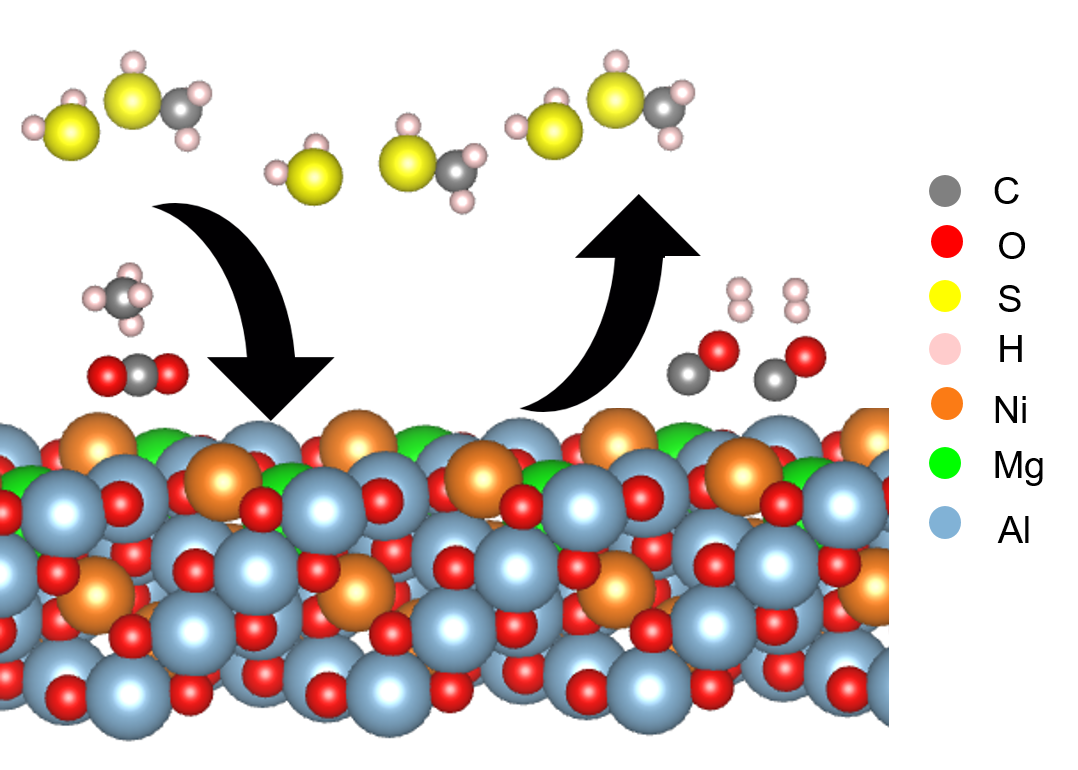2024 AIChE Annual Meeting
(569ec) Understanding Methane Reforming on Model Spinel Oxide Catalysts for High Temperature Fuel Cells
Author
Obioma Uche - Presenter, Rochester Institute of Technology
In comparison to other fuel cell technologies, solid oxide fuel cells (SOFCs) offer high efficiency operation with the added benefit of enabling internal reforming of a variety of hydrocarbon fuels. Powering SOFCs by carbon-containing fuels remains a challenge because of electrode degradation via coking and catalyst deactivation by sulfur poisoning, even at low levels (15 ppm). Previous research has revealed that, in comparison to conventional nickel-spinel oxide catalysts, cobalt-promoted forms exhibit superior sulfur tolerance while retaining activity for the dry reforming of methane (DRM) when incorporated into SOFC anodes. We hypothesize that the disparities in catalytic performance can be attributed to preferential adsorption of relevant sulfur species on sites which are important for DRM on the unpromoted catalyst but are less crucial for the Co-promoted spinel oxide.
To that end, we have performed electronic structure calculations to investigate the potential reaction pathways for methane reforming and thus, obtain mechanistic descriptions of the DRM process on both catalysts. The interactions between sulfur compounds and the active catalytic sites determined from the above analysis were then examined to prove our hypothesis. The presented work will provide insights which may explain disparities in catalytic performance for methane reforming in sulfur-rich environments.
